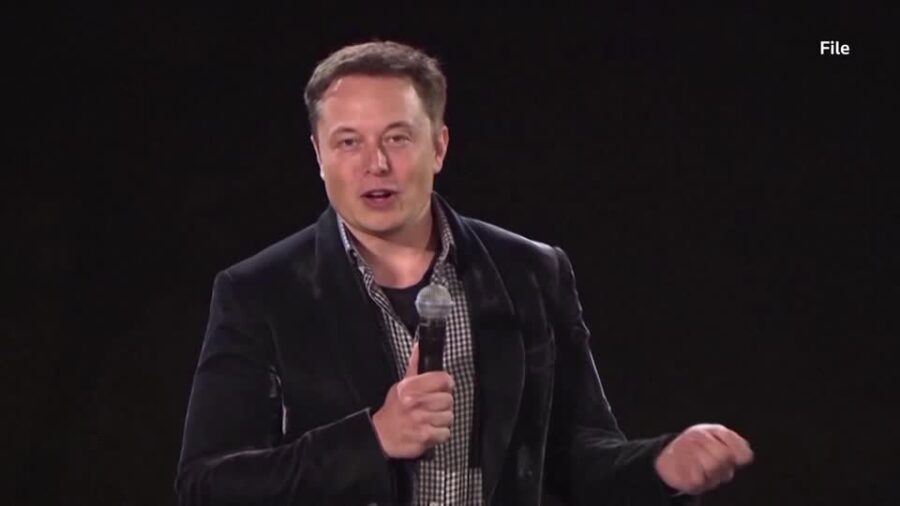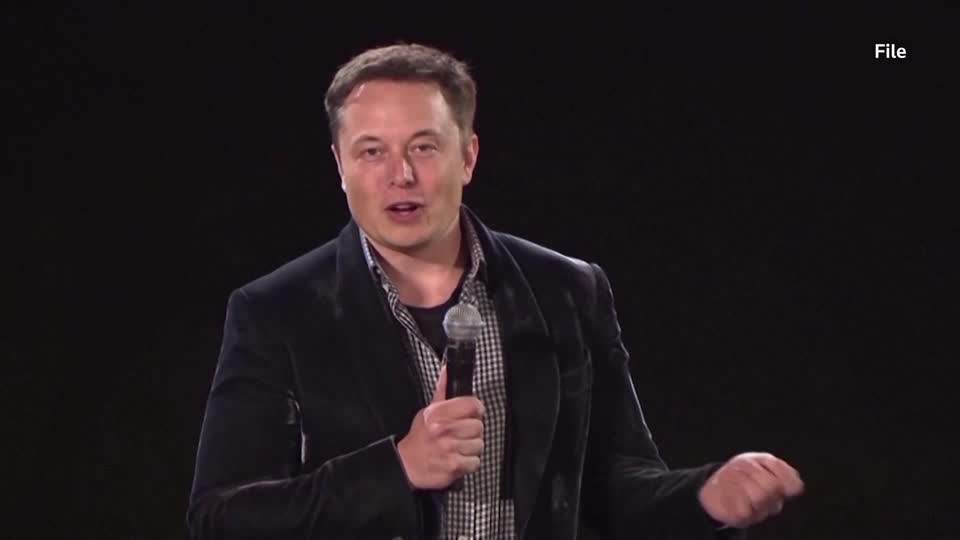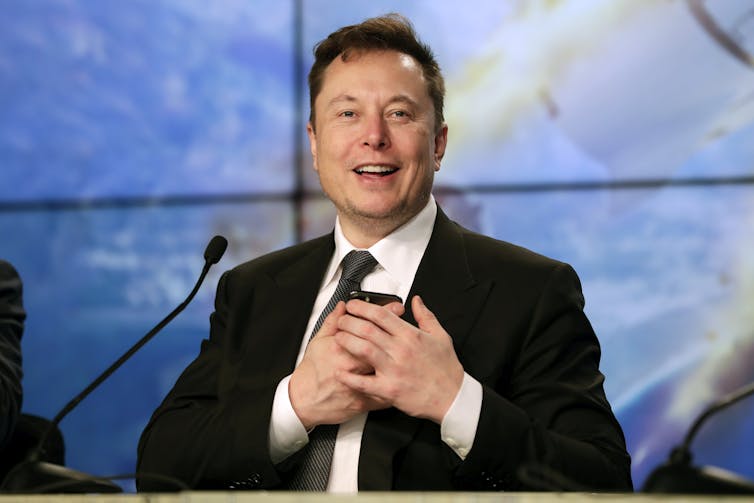
Elon Musk Acquires Twitter in $44-Billion Deal
South African expat Elon Musk has acquired Twitter Inc in a $44-billion deal today, 11 days after first offering to buy the social media platform. The billionaire entrepreneur (Tesla, SpaceX) and world’s richest man said “I hope that even my worst critics remain on Twitter, because that is what free speech means”. Twitter accepted the […]

South African expat Elon Musk has acquired Twitter Inc in a $44-billion deal today, 11 days after first offering to buy the social media platform. The billionaire entrepreneur (Tesla, SpaceX) and world’s richest man said “I hope that even my worst critics remain on Twitter, because that is what free speech means”.
Twitter accepted the buyout, giving Musk total control of the company. Musk believed the company needed to go private to make effective changes… like removing bots and including an ‘edit’ button.
Musk is one of Twitter’s most prolific tweeters, with a cool 83.9 million followers, over 20 million more than Twitter’s own 61.3 million followers.
While some heralded Musk’s move as protecting America’s First Amendment, others were not so happy. Thousands have said they’re leaving Twitter. The White House declined to comment on Musk‘s deal, but said that President Joe Biden has long been concerned about the power of social media platforms.

“Our concerns are not new,” said White House spokesperson Jen Psaki. “The president has long talked about his concerns about the power of social media platforms, including Twitter and others, to spread misinformation.”
Some human rights groups raised concerns about hate speech on Twitter and the power that its takeover by Musk would give the billionaire after the self-described “free speech absolutist” clinched the deal.
In a statement after securing the deal on Monday, Musk described free speech as “the bedrock of a functioning democracy.”
Twitter is not just another company, human rights advocates noted. “Regardless of who owns Twitter, the company has human rights responsibilities to respect the rights of people around the world who rely on the platform. Changes to its policies, features, and algorithms, big and small, can have disproportionate and sometimes devastating impacts, including offline violence,” Deborah Brown, a digital rights researcher and advocate at Human Rights Watch, told Reuters in an email.
One thing is for certain – the buyout is a success for shareholders.
Elon Musk’s statement on buying Twitter, and a tweet from 2017:
Most motivational screenshot ever. ♥️💪 pic.twitter.com/kvjRsrQ4Kc
— Prayag (@theprayagtiwari) April 25, 2022
https://youtu.be/wZpu9VVq3ow
***
Elon Musk’s plans for Twitter could make its misinformation problems worse – by The Conversation

AP Photo/John Raoux
By Anjana Susarla, Michigan State University
Elon Musk, the world’s richest person, acquired Twitter in a US$44 billion deal on April 25, 2022, 11 days after announcing his bid for the company. Twitter announced that the public company will become privately held after the acquisition is complete.
In a filing with the Securities and Exchange Commission for his initial bid for the company, Musk stated, “I invested in Twitter as I believe in its potential to be the platform for free speech around the globe, and I believe free speech is a societal imperative for a functioning democracy.”
As a researcher of social media platforms, I find that Musk’s ownership of Twitter and his stated reasons for buying the company raise important issues. Those issues stem from the nature of the social media platform and what sets it apart from others.
What makes Twitter unique
Twitter occupies a unique niche. Its short chunks of text and threading foster real-time conversations among thousands of people, which makes it popular with celebrities, media personalities and politicians alike.
Social media analysts talk about the half-life of content on a platform, meaning the time it takes for a piece of content to reach 50% of its total lifetime engagement, usually measured in number of views or popularity based metrics. The average half life of a tweet is about 20 minutes, compared to five hours for Facebook posts, 20 hours for Instagram posts, 24 hours for LinkedIn posts and 20 days for YouTube videos. The much shorter half life illustrates the central role Twitter has come to occupy in driving real-time conversations as events unfold.
Twitter’s ability to shape real-time discourse, as well as the ease with which data, including geo-tagged data, can be gathered from Twitter has made it a gold mine for researchers to analyze a variety of societal phenomena, ranging from public health to politics. Twitter data has been used to predict asthma-related emergency department visits, measure public epidemic awareness, and model wildfire smoke dispersion.
Tweets that are part of a conversation are shown in chronological order, and, even though much of a tweet’s engagement is frontloaded, the Twitter archive provides instant and complete access to every public Tweet. This positions Twitter as a historical chronicler of record and a de facto fact checker.
Changes on Musk’s mind
A crucial issue is how Musk’s ownership of Twitter, and private control of social media platforms generally, affect the broader public well-being. In a series of deleted tweets, Musk made several suggestions about how to change Twitter, including adding an edit button for tweets and granting automatic verification marks to premium users.
There is no experimental evidence about how an edit button would change information transmission on Twitter. However, it’s possible to extrapolate from previous research that analyzed deleted tweets.
There are numerous ways to retrieve deleted tweets, which allows researchers to study them. While some studies show significant personality differences between users who delete their tweets and those who don’t, these findings suggest that deleting tweets is a way for people to manage their online identities.
Analyzing deleting behavior can also yield valuable clues about online credibility and disinformation. Similarly, if Twitter adds an edit button, analyzing the patterns of editing behavior could provide insights into Twitter users’ motivations and how they present themselves.
Studies of bot-generated activity on Twitter have concluded that nearly half of accounts tweeting about COVID-19 are likely bots. Given partisanship and political polarization in online spaces, allowing users – whether they are automated bots or actual people – the option to edit their tweets could become another weapon in the disinformation arsenal used by bots and propagandists. Editing tweets could allow users to selectively distort what they said, or deny making inflammatory remarks, which could complicate efforts to trace misinformation.
Musk has also indicated his intention to combat twitter bots, or automated accounts that post rapidly and repeatedly in the guise of people. He has called for authenticating users as real human beings.
Given challenges such as doxxing and other malicious personal harms online, it’s important for user authentication methods to preserve privacy. This is particularly important for activists, dissidents and whistleblowers who face threats for their online activities. Mechanisms such as decentralized protocols can enable authentication without sacrificing anonymity.
Twitter’s content moderation and revenue model
To understand Musk’s motivations and what lies next for social media platforms such as Twitter, it’s important to consider the gargantuan – and opaque – online advertising ecosystem involving multiple technologies wielded by ad networks, social media companies and publishers. Advertising is the primary revenue source for Twitter.
Musk’s vision is to generate revenue for Twitter from subscriptions rather than advertising. Without having to worry about attracting and retaining advertisers, Twitter would have less pressure to focus on content moderation. This could make Twitter a sort of freewheeling opinion site for paying subscribers. In contrast, until now Twitter has been aggressive in using content moderation in its attempts to address disinformation.
Musk’s description of a platform free from content moderation issues is troubling in light of the algorithmic harms caused by social media platforms. Research has shown a host of these harms, such as algorithms that assign gender to users, potential inaccuracies and biases in algorithms used to glean information from these platforms, and the impact on those looking for health information online.
Testimony by Facebook whistleblower Frances Haugen and recent regulatory efforts such as the online safety bill unveiled in the U.K. show there is broad public concern about the role played by technology platforms in shaping popular discourse and public opinion. Musk’s acquisition of Twitter highlights a whole host of regulatory concerns.
Because of Musk’s other businesses, Twitter’s ability to influence public opinion in the sensitive industries of aviation and the automobile industry automatically creates a conflict of interest, not to mention affects the disclosure of material information necessary for shareholders. Musk has already been accused of delaying disclosure of his ownership stake in Twitter.
Twitter’s own algorithmic bias bounty challenge concluded that there needs to be a community-led approach to build better algorithms. A very creative exercise developed by the MIT Media Lab asks middle schoolers to re-imagine the YouTube platform with ethics in mind. Perhaps it’s time to ask Musk to do the same with Twitter.![]()
Anjana Susarla, Professor of Information Systems, Michigan State University
This article is republished from The Conversation under a Creative Commons license. Read the original article.
